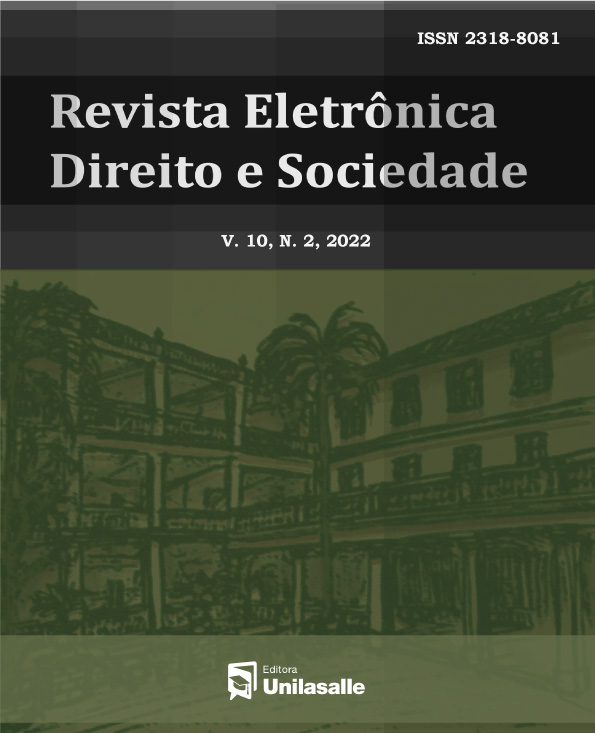Educação ambiental no ensino superior: a educação ecológica e a transição paradigmática
DOI:
https://doi.org/10.18316/redes.v10i2.8353Parole chiave:
Desenvolvimento sustentável, Alfabetização ecológica, Direito ambiental, Direito ecológicoAbstract
Os debates sobre a crise ambiental deram origem a inúmeros instrumentos legais e iniciativas políticas que têm como objetivo limitar ou reduzir os efeitos das atividades humanas sobre o planeta. Dentre essas iniciativas, destaca-se o reconhecimento da importância da educação ambiental para a formação da consciência ecológica na humanidade. Contudo, apesar da urgência e relevância da implementação de medidas efetivas para o desenvolvimento de uma sociedade mais sustentável, a educação ambiental ainda não está sendo efetivamente implementada no ensino brasileiro. A presente pesquisa busca abordar a relevância da educação ambiental na transição paradigmática hodierna, identificando as principais dificuldades encontradas para sua implementação no ensino superior brasileiro, em especial para o Curso de Direito do CCJ/UFSC. Discute-se a possibilidade de desenvolver a educação ambiental no ensino superior e, mais especificamente, como promovê-la em disciplinas que, a princípio, não se relacionariam diretamente com o tema. Trata-se de pesquisa pura, de abordagem qualitativa e indutiva. Em relação aos fins, utilizou-se o método descritivo e o método de interpretação foi sociológico.Downloads
Pubblicato
Fascicolo
Sezione
Licenza
Autores que submetem seus manuscritos para serem publicados na Revista REDES concordam com os seguintes termos:
Os autores declaram ter ciência de que mantém os direitos autorais concedendo à REDES o direito à publicação.
Os autores declaram ter ciência de que o trabalho submetido será licenciado sob a Licença Creative Commons atribuição não-comercial que permite o compartilhamento do artigo com reconhecimento da autoria e publicação nesta revista.
Os autores declaram ter ciência que em virtude de os artigos publicados nesta revista tem acesso público e gratuito.
Os autores declaram, sob as penas da lei, que o texto é inédito e original e que têm ciência de que identificada a existência de plágio, os autores plagiados serão informados – para querendo, tomarem as medidas legais nas esferas cível e criminal – e, os autores do plágio terão seu acesso à revista bloqueado.
Os autores declaram que – em caso de coautoria – todos contribuíram significativamente para a pesquisa.
Os autores obrigam-se a fornecer retratações e (ou) correções de erros em caso de eventual detecção.
Os autores obrigam-se a não publicar o texto submetido a REDES em outra Revista eletrônica (ou não).

A Revista Eletrônica Direito e Sociedade - REDES - está licenciado com uma Licença Creative Commons Atribuição-NãoComercial 4.0 Internacional.
Baseado no trabalho disponível em http://revistas.unilasalle.edu.br/index.php/redes/about/submissions#copyrightNotice.
Podem estar disponíveis autorizações adicionais às concedidas no âmbito desta licença em http://creativecommons.org/.

